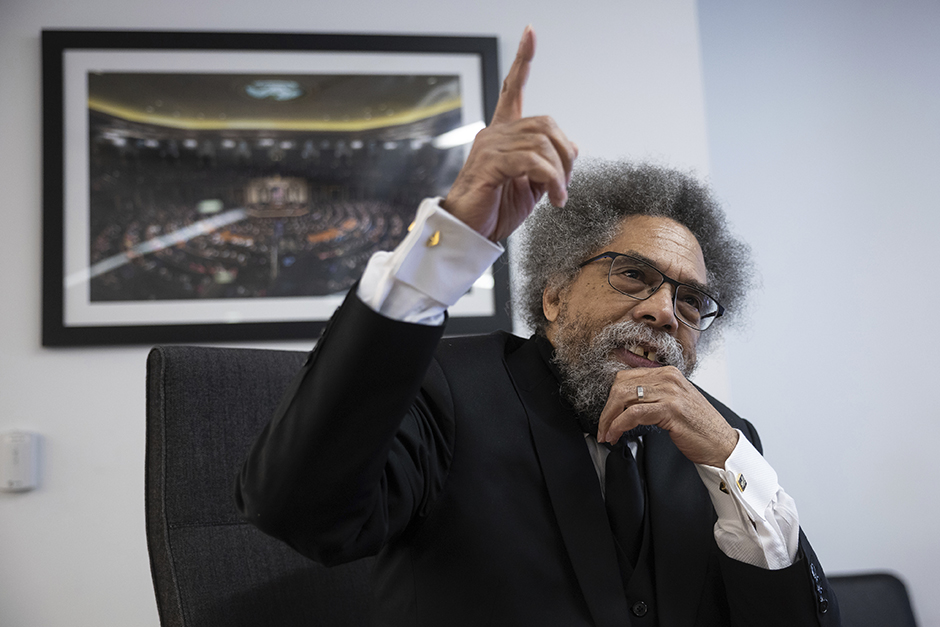The academic world, often perceived as an ivory tower removed from the drama of everyday life, occasionally serves up a spectacle that resonates far beyond its hallowed halls. Few clashes have etched themselves into public memory quite like the high-stakes intellectual sparring between philosopher Cornel West and economist Larry Summers during Summers’ controversial tenure as president of Harvard University. Now, decades later, West observes the ongoing public discourse surrounding Summers with a distinctive perspective, suggesting a form of poetic justice unfolding in the public square.
For those who followed the original saga, the dynamic between West, a fiery public intellectual and prophetic voice, and Summers, a formidable economist and administrative leader, was never merely a personal dispute. It represented a clash of pedagogical philosophies, institutional power, and the very soul of academic freedom. West’s eventual departure from Harvard became a symbolic moment, highlighting the tensions between a university’s pursuit of pragmatic efficiency and its commitment to fostering radical thought and diverse perspectives.
The Echoes of a Profound Disagreement
The original feud was steeped in fundamental differences regarding what constitutes valuable academic pursuit and the appropriate exercise of administrative authority. West, a proponent of what he calls “Socratic questioning” and a fearless critic of establishment power, found himself at odds with Summers’ more data-driven, results-oriented approach. West argued that Summers had questioned his intellectual rigor and the value of his scholarship, leading to a profound feeling of disrespect and intellectual marginalization.
At the heart of West’s concerns was the perceived narrowing of academic discourse and the suppression of critical voices, especially those challenging prevailing orthodoxies. His departure was less about a single incident and more about a systemic issue: the vulnerability of independent scholarship when confronted by powerful institutional leadership. “The struggle was never just about me,” West has often articulated, “it was about maintaining intellectual integrity and prophetic witness within the academy against forces that seek to tame and commodify thought.” The fallout sent ripples through the higher education landscape, prompting uncomfortable conversations about the role of universities in fostering genuine intellectual freedom versus managing public perception and financial priorities.
Poetic Justice: West’s Timely Observation
Today, Larry Summers remains a prominent voice in economic policy debates and public commentary, frequently offering his insights on global finance and government action. He commands attention, but also increasingly faces intense scrutiny and sometimes sharp criticism for his views, particularly on inflation, economic inequality, and broader societal issues. It is within this shifting landscape that Cornel West perceives his particular brand of poetic justice.
West isn’t suggesting a personal comeuppance but rather observing a broader trend. He sees a powerful figure, once seemingly unassailable within his institutional role, now subjected to the very kind of rigorous, sometimes unsparing, public critique that West himself has long championed and, ironically, felt he was subject to under Summers’ leadership. The public sphere, much like West’s vision for the academy, demands accountability, diverse perspectives, and often challenges established authority. Summers, through his continued engagement, finds himself squarely in that arena.
As one political observer noted, “It’s fascinating to see how the tables can turn, even decades later. West’s original critique was about integrity and intellectual courage in the face of power, and now Summers, still a powerful voice, faces similar questions about his policy prescriptions and public pronouncements, albeit in a different arena. There’s a certain cyclical wisdom in West’s observation.” The dynamic suggests that even the most powerful voices are not immune to the relentless, democratic crucible of public debate.
The Enduring Resonance of Intellectual Combat
The story of Cornel West and Larry Summers transcends personal animosity; it’s a continuing narrative about the inherent tensions in intellectual life and public service. West, through his unwavering commitment to justice and truth-telling, consistently reminds us that power, whether academic or economic, must always be interrogated. His current observation of Summers isn’t an act of gloating, but rather a deep philosophical reflection on the long arc of consequences, public perception, and the ultimate accountability demanded of those who shape our institutions and discourse.
In a world increasingly polarized and quick to forget yesterday’s headlines, West’s steady gaze offers a poignant reminder that ideas have consequences, and that the struggle for intellectual freedom and integrity is an ongoing, vital process. The unfolding narrative surrounding Summers today, viewed through West’s lens, serves as a powerful testament to the enduring resonance of their decades-old clash, reminding us that the principles fought for then continue to shape our present and future.




